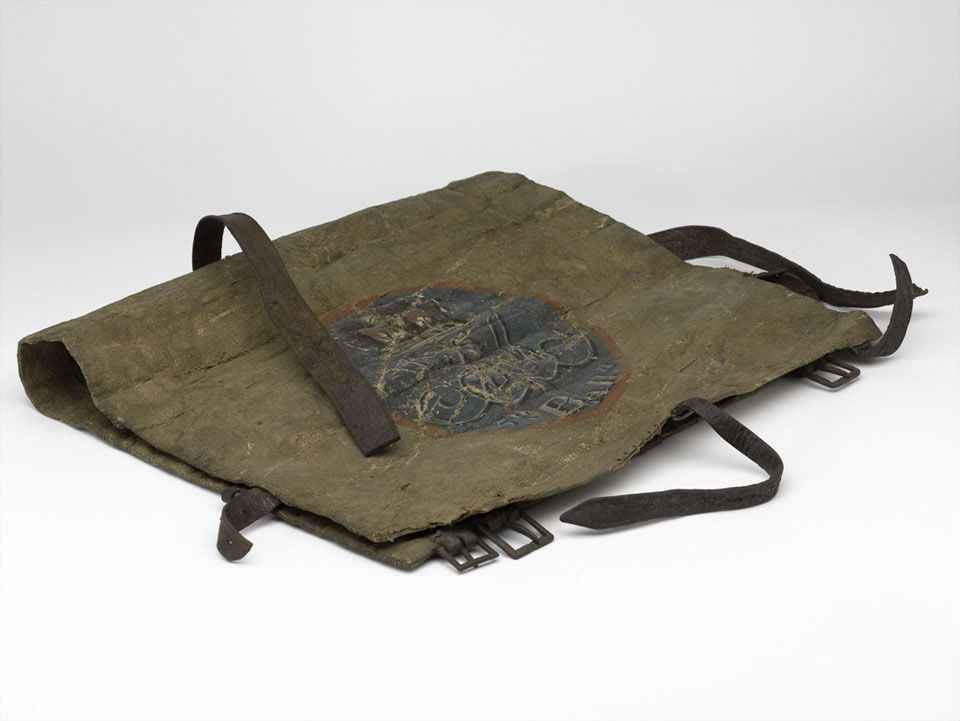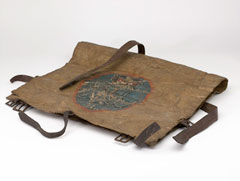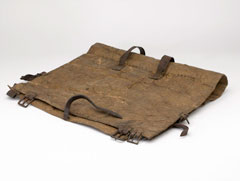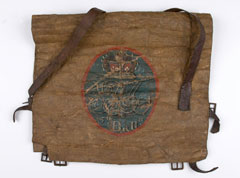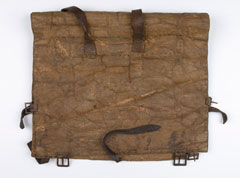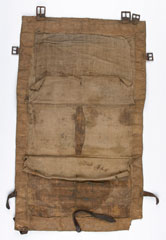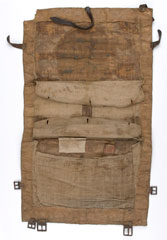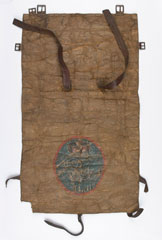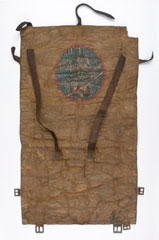
Online Collection
« Prev - 1 of 1 results - Next »
Soldier's knapsack, 1800 (c)
A knapsack was amongst the 60-odd pounds of equipment carried by British infantry at Waterloo (1815). It was in these sacks, tied with leather straps, that the men carried their kit. This included items such as off-duty jacket, two shirts, spare shoes, two pairs of stockings, brushes, button stick, comb, pen, ink, black ball, pipe clay, and tent pegs.
The design of this piece of equipment changed over time. Until the introduction of the famous 'Trotter' knapsack, designed by Thomas Trotter of Soho Square in 1805, troops carried a canvas version on their backs, supported by straps (from 1790 to 1805). As in this example, the number of the regiment or volunteer unit to which the wearer belonged was inscribed on the flap of the knapsack. This example displays (the not easily read) graphics 'RA' for Royal Artillery.
The design of the later and infamous Trotter pack was different. It was constructed of black lacquered canvas, reinforced with leather at the corners and fastened rather like a suitcase. Internally the pack was braced by wooden batons, which gave it a smart appearance, but made it uncomfortable to wear. The edges dug into the spine. The cross straps, which were buckled across the chest to join the shoulder straps together, caused constriction of breathing and sometimes resulted in 'pack palsy'. This would occur when the shoulder straps dug hard into the armpit and resulted in nerve damage.
Both types of pack were used in the Napoleonic Wars. The canvas type was seen during the 1815 campaigns, worn by militia men who had recently joined line regiments.
NAM Accession Number
NAM. 1987-06-2-1
Copyright/Ownership
National Army Museum Copyright
Location
National Army Museum, Study Collection
Object URL
https://collection.nam.ac.uk/detail.php?acc=1987-06-2-1

